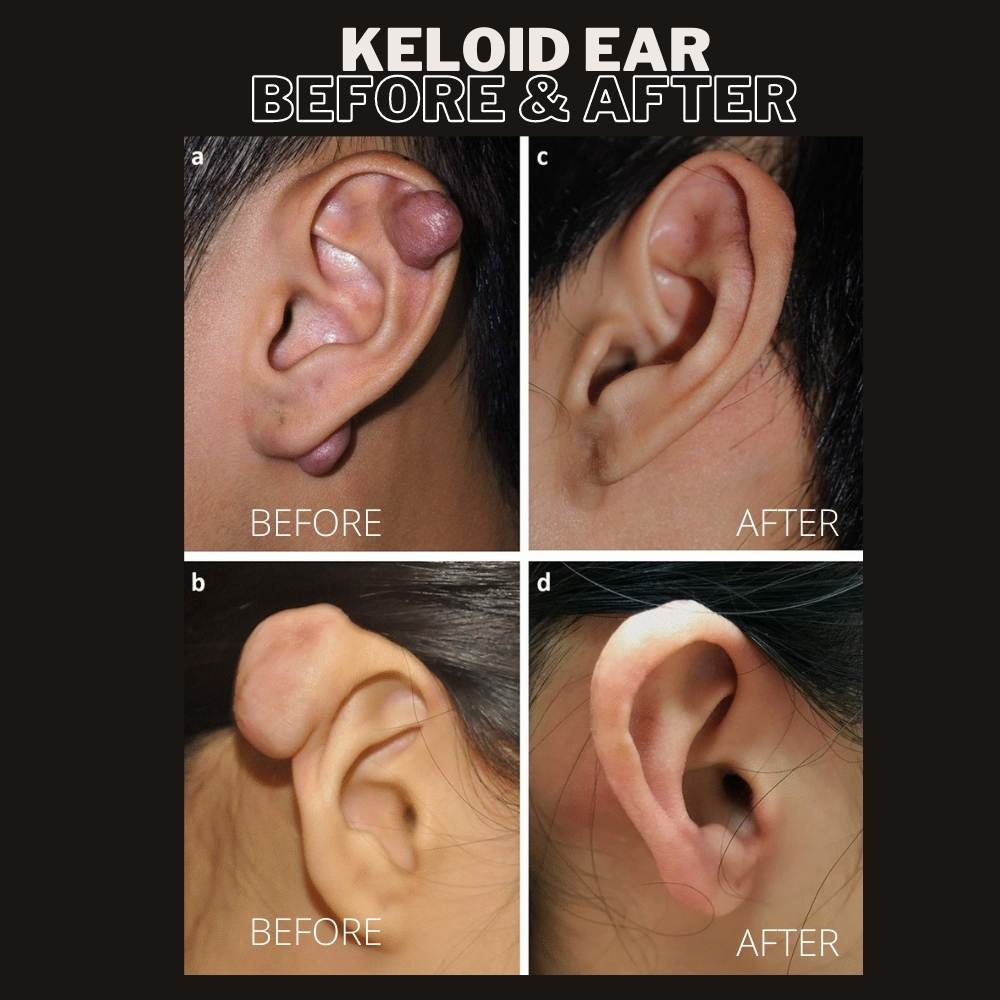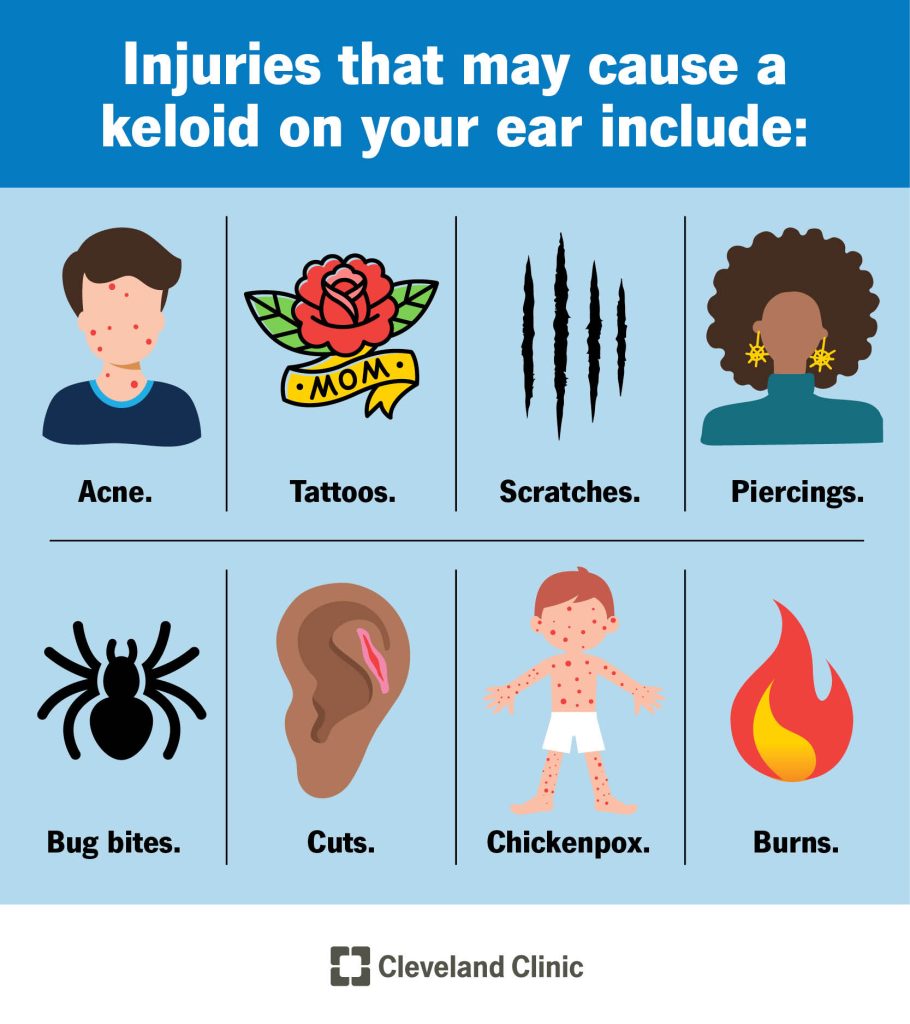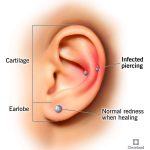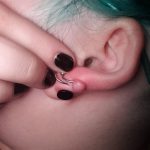Keloids can be annoying and uncomfortable. They often appear after a piercing. If you have a keloid, don’t worry. You can learn how to manage it. This article will guide you on how to get rid of keloids from piercings.
What Are Keloids?
Keloids are thick, raised scars. They form when the skin heals after an injury. Instead of fading, they grow bigger. Keloids can appear anywhere on the body. However, they often show up on ears, nose, and other areas with piercings.
Why Do Keloids Form?
- Skin trauma: A piercing can injure the skin.
- Genetics: Some people are more likely to get keloids.
- Age: Young people often get keloids more than older folks.
- Skin type: Darker skin types are at higher risk.
Common Areas for Keloids
Keloids can appear on various body parts. Here are some common areas:
- Ears: Keloids on ears are quite common.
- Nose: Keloids can form from nose piercings.
- Chest: Keloids can grow from chest piercings.
- Back: Back piercings can lead to keloids too.

Credit: topplasticsurgery.org
How to Identify a Keloid
It is important to know how to spot a keloid. Here are some signs:
- Raised and thickened skin.
- Color may be darker than your skin.
- It may feel itchy or painful.
- It grows larger over time.

Credit: www.reddit.com
How to Prevent Keloids
Prevention is better than cure. Here are some tips to avoid keloids:
- Choose a professional piercer.
- Follow aftercare instructions carefully.
- Avoid touching or playing with the piercing.
- Keep the area clean and dry.
How to Heal Keloid Piercing
If you already have a keloid, here are some ways to heal it:
1. Medical Treatments
Consult a doctor for medical treatments. They can offer options like:
- Steroid Injections: These can help shrink keloids.
- Laser Therapy: This can reduce keloid size.
- Freezing Therapy: This can stop keloid growth.
- Surgery: Doctors can remove keloids, but they may grow back.
2. Home Remedies
Some people prefer natural treatments. Here are some home remedies:
- Silicone Gel Sheets: These can flatten keloids.
- Aloe Vera: This can soothe and heal skin.
- Honey: It has natural healing properties.
- Apple Cider Vinegar: It may help reduce size.
3. Keep The Area Clean
Clean the keloid regularly. Use a mild soap and water. This helps prevent infections and promotes healing.
4. Moisturize
Apply a good moisturizer on the keloid. This keeps the skin hydrated. Hydrated skin heals better.
5. Protect The Keloid
Avoid exposing the keloid to harsh chemicals. Protect it from sun exposure. Use sunscreen if going outside.
What to Do If You Have Keloids on Ears
Keloids on ears can be frustrating. Here are steps to manage them:
- Use silicone sheets for flattening.
- Apply steroid ointments as recommended.
- Visit a dermatologist for professional help.
Dealing with Keloid Scars from Nose Piercings
Keloids can also form from nose piercings. Here’s how to handle them:
- Keep the area clean and dry.
- Use a gentle cleanser.
- Apply a soothing cream.
Consulting a Professional
If your keloid does not improve, see a doctor. They can help find the best treatment. It’s important to address keloids early. Early treatment can prevent them from growing larger.
Living with Keloids
Living with keloids can be challenging. They may affect self-esteem. Here are tips to cope:
- Educate yourself about keloids.
- Talk to friends or family for support.
- Consider joining support groups.
When to Seek Help
Seek medical help if you notice:
- Rapid growth of the keloid.
- Severe pain or itching.
- Signs of infection, like redness or swelling.
Frequently Asked Questions
What Are Keloids On Piercings?
Keloids are raised scars that form after skin injury, like a piercing.
How Can I Get Rid Of Keloids?
Treatments include silicone gel, cortisone injections, or surgical removal.
Do Keloids Go Away On Their Own?
Keloids rarely disappear without treatment. They usually stay or grow.
Can I Prevent Keloids After A Piercing?
Use proper aftercare and avoid unnecessary irritation to the piercing.
Conclusion
Keloids from piercings can be managed. Understand what keloids are and how they form. Follow prevention tips to avoid them. If you have keloids, consider medical or home treatments. Always keep the area clean. Protect your skin from harm. Seek help if needed. With care and patience, you can manage keloids effectively.




